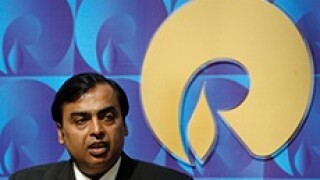Westpac
-
Westpac was in the market on Thursday with a €500m green bond, in the same week as HSBC Holdings priced its first sustainable bond at a size of $1bn.
-
-
The public sector market for euro paper is providing superb execution for those borrowers that still have needs in the currency — but those are few and far between.
-
Auckland Council is set to bring its second euro bond of the year — and only its third ever — next week, following a series of investor meetings in Europe.
-
Cathay United picks corporate banking head — Raciti set to run ANZ Korea — Ramachandran confirmed for Westpac CIB — Standard Chartered rings the changes
-
A group of four lenders has joined a $300m loan for China Modern Dairy during general syndication. The newcomers were not scaled back from their initial commitments.
-
Deutsche Bank has hired a senior executive from a rival to lead its technology, media, and telecom investment banking efforts in Asia Pacific.
-
Westpac has hired an ex-BBVA banker to helm its Greater China operation as the Australian lender looks to further its reach in the region.
-
A $2.5bn refinancing by Reliance Industries (RIL) and its telecommunications arm, Reliance Jio Infocomm, has been opened to retail participants.
-
The mandate for Reliance Industries’ $2.5bn refinancing has been revealed. The deal will consist of three portions, the bulk of which will replace a $1.5bn loan taken by one of its subsidiaries in late 2014.
-
Bank of Montreal (BMO) raised A$800m selling Australian dollar bonds for the first time on Wednesday. The rising flows of Asia Pacific investors is making the Australian dollar market a useful source of diversification for financials and corporates alike.
-
Bank of Montreal launched an inaugural Australian dollar benchmark on Wednesday. As the fanfare for other Canadian financials has demonstrated, the Asian Pacific buyers are likely to come out in full force.










